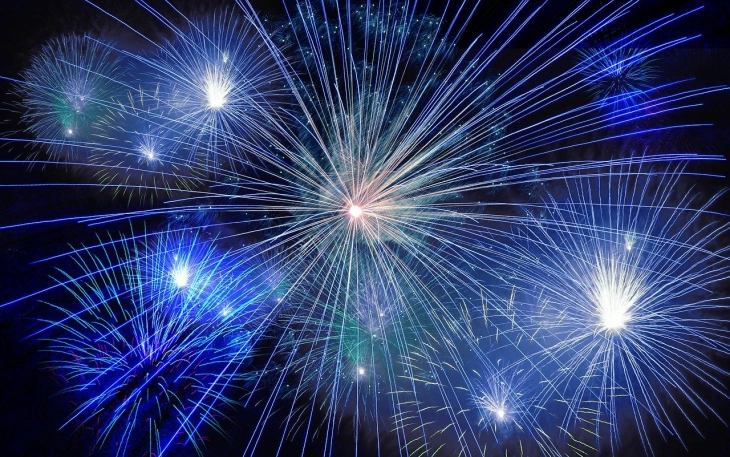2022 begins in the Pacific with fireworks back on centre stage

Berlin, 31 December 2021 (dpa/MIA) - The year 2022 is here in some countries, with the inhabitants of the South Pacific islands of Samoa and Kiribati the first to start the new year at 1000 GMT, and New Zealand following one hour later.
Unlike last year, when public fireworks were cancelled due to the coronavirus pandemic, they were allowed to be shot into the sky again in Samoa. According to the tourism authority, the island state had flown in five pyrotechnics experts from New Zealand to install the fireworks.
Meanwhile, in the archipelago of Tonga, the forces of nature did not take a break on New Year's Eve: Since Christmas, the authorities have been warning against approaching the Hunga Tonga-Hunga Ha'apai volcano, which last erupted in 2014, but which is active again and spewing ash and gas into the air.
Sydney kicked off 2022 with 6 tons of colourful fireworks against the imposing backdrop of the Harbour Bridge and Opera House.
Unlike last year, tens of thousands of spectators were again admitted this time to watch the spectacle live, despite a sharp rise in coronavirus numbers in the region. However, all participants had to buy a ticket for one of about 30 viewing points.
Citizens without a reservation or vaccination should avoid the city centre if possible, organizers had advised.
The world-famous fireworks display was broadcast live on the internet and by the Australian national broadcaster ABC. Last year, the centre of Sydney had been closed to spectators.
Before the pandemic, the impressive spectacle had attracted more than 1 million people every year. However, the state of New South Wales, where Sydney is located, is currently the worst affected region of the country by the coronavirus, due to the spread of the Omicron variant.
On Friday, authorities in New South Wales reported more than 21,000 new infections, more than ever before, ABC reported.
It will take 26 hours, up to 1200 GMT on Saturday, for the entire globe to ring in the new year.
After Samoa, the next areas to start 2022 are, in order, Asia, Europe, South America, the US East Coast, California, Hawaii and finally the uninhabited islets of Baker Island and Howland Island back in the Pacific.
Many large parties and fireworks displays have been cancelled around the world, for example in London and Paris.
Elsewhere, the celebrations have been scaled down considerably, including events in Madrid and Rio.
In Berlin, there will be no big fireworks display at the Brandenburg Gate and no party with hundreds of thousands of people. However, public broadcaster ZDF plans to offer a show with singers like Bonnie Tyler and Marianne Rosenberg, among others.
Germany recently reintroduced contact restrictions due to fears of the rapid spread of the Omicron variant, and there is once again a general ban on the sale of fireworks in the last days of the year.
The aim is to relieve hospitals of additional patients during the pandemic period. In some cities, fireworks are banned in certain areas. The police have announced increased checks.
Taiwan's New Year's Eve fireworks display in Taipei, at one of the tallest buildings in the world, is expected to draw more than 1 million revellers as the coronavirus situation in Taiwan remains relatively manageable.
About 16,000 fireworks are expected to be used during a six-minute firework show, themed on well-being and a shared future, at the 509-metre tall Taipei 101 high-rise building.
In Dubai, the world's tallest building, the 828-metre-high Burj Khalifa, plans once again to host a fireworks display complete with a light and laser show.
There are also hardly any restrictions in Moscow, even if - unlike in the United Arab Emirates - the vaccination rate there is low. Among other things, a large fireworks display is planned for Red Square.
In New York, the traditional New Year's Eve party in Times Square is to take place again with spectators - but all visitors must be vaccinated against Covid-19.
As is the case every year, the celebration is to be broadcast live on television and online - including the traditional ball drop - the lowering of a glowing crystal ball. Stars such as rapper and actor LL Cool J are expected at the party.







